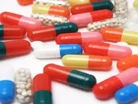Virus samples to be shared globally

The World Health Organisation (WHO) has confirmed that all countries will share virus samples with its network of laboratories in the hope that affordable vaccines can be derived from them.
The move – which has been designed to improve readiness for a flu pandemic – is also supported by the International Federation of Pharmaceutical Manufacturers and Associations (IFPMA), who represent 26 drug-making companies.
All-night negotiations for the deal ended on Saturday after a draft agreement was reached, agreed to by all countries.
READ MORE FROM THE WDM CONTENT NETWORK:
To read the latest edition of Exec Digital, click here
Faulty genes linked to ADHD
Vegetarians enjoy a healthier and safer diet
Facebook and YouTube help the old stay young
The IFPMA represents drug-makers across Europe, Japan and the United States. Their portfolio includes major flu vaccine makers like GlaxoSmithKline, Novartis and Sanofi-Aventis, as well as Roche, the makers of Tami-flu.
According the statement released by the IFPMA, negotiators “reached a decision that will result in an effective global system to prepare for potential future influenza pandemics, recognizing a shared responsibility to help secure the world against future pandemic influenza outbreaks.”
“It is crucial that the system allows for rapid access to pandemic viruses and for benefits to be allocated to those countries most in need,” the IFPMA said.
The statement also said that, IFPMA members have agreed to “reserve at least 10 percent of pandemic vaccine manufacturing capacity on a real-time basis, for donation to the WHO and/or supply at tiered prices, to developing countries.”
Preparations for the deal began after the outbreak of the HN51 bird flu virus in Southeast Asia during 2009-2010. A year after the outbreak, Indonesia stopped sharing its flu virus samples, instead demanding its share of the vaccines against it.
Many other developing countries also complained that they had no anti-viral medicines or vaccines to treat the new virus.
Although the WHO distributed around 78 million vaccines to 77 developing countries, issues surrounding intellectual property rights and regulatory barriers slowed the process down.
As part of this new arrangement the pharmaceutical industry has agreed to do more: “IFPMA members will continue to ensure that intellectual property rights do not present a barrier at the next pandemic,” the IFPMA said.
According to the drug companies, the capacity for producing pandemic flu vaccines currently stands at 1.1 billion doses.



